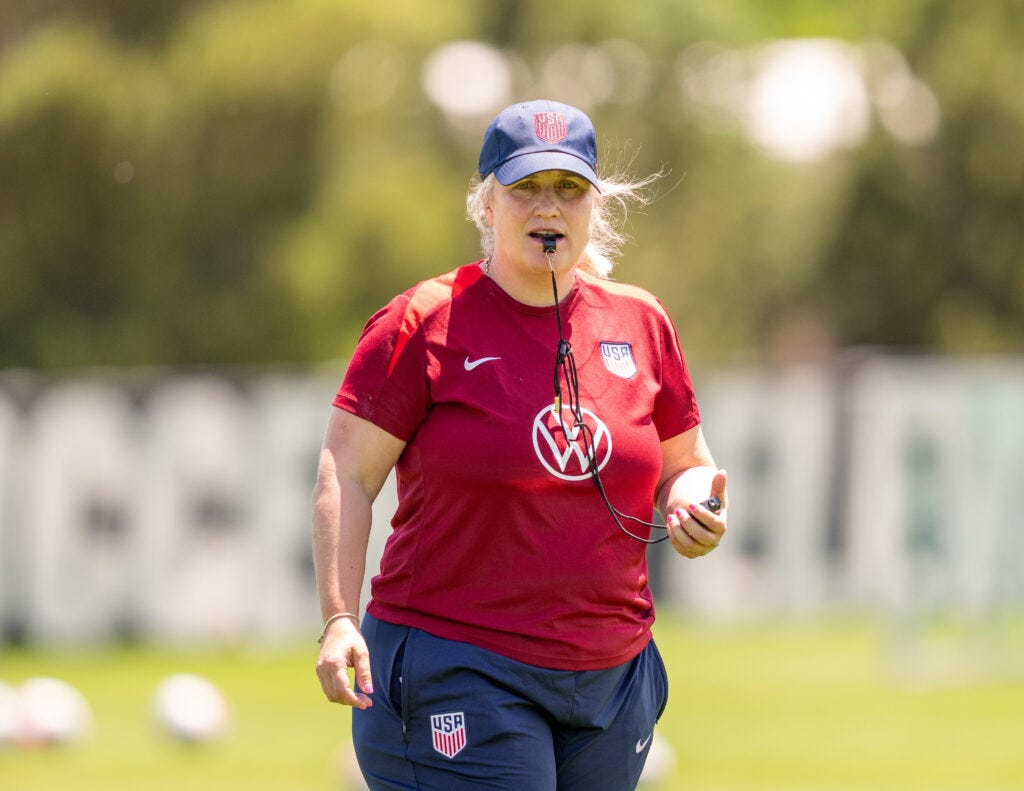Emma Hayes’ journey to potential USWNT savior began at Iona
The Americans enter the 2024 Paris Olympics with a splashy new managerial hire, one whose coaching journey has humble roots at the NCAA level
The United States women’s national soccer team found itself in an unfamiliar and equally uncomfortable position around this time last year.
Unlike their flailing male counterparts, the American women have long excelled on the international stage. They won the first-ever Women’s World Cup in 1991. Eight years later, their now-iconic 1999 team again won the World Cup, this time in front of sold-out football stadiums on home soil while inspiring a generation of girls to play the sport. After a 16-year drought between World Cup titles following that ‘99 run, the USWNT won two in a row, once again establishing itself as women’s soccer’s preeminent force globally.
In 2023, that infallibility crumbled. After settling for a bronze medal two years earlier at the Tokyo Olympics, the Americans barely survived the group stage of the World Cup before bowing out in the Round of 16, the first time they had ever failed to at least reach the semifinals. It wasn’t just that the USWNT lost; it looked uninspired doing so, scoring just four goals in four matches and displaying a glaring lack of creativity, especially in the final third.
After that stunning result, the Americans found themselves at an inflection point. One generation of players whose triumphs had made them synonymous with soccer in the United States exited to make way for another, largely unproven group. Then there was the matter of finding a new manager, someone who could lead those younger players to a more inspired brand of play and the championship results so many in this country have come to expect.
That search ended with what could aptly be described as a coup. The USWNT hired Emma Hayes, an English manager who had led Chelsea to seven FA Women’s Super League championships in the past nine seasons, including five consecutive titles to end her run. Tactically, the 47 year old is regarded as one of the sharpest, most innovative women’s coaches in the world. For good measure, her overwhelming success even made her an officer of the Order of the British Empire.
For all her British bonafides, Hayes was drawn to the USWNT at least in part because of a deep connection and strong affinity for the country. After all, it was here where her coaching journey began – specifically, on the fabled sidelines of the Metro Atlantic Athletic Conference.
Two decades before she’d be hired as the USWNT’s savior, she was serving in a very different coaching role stateside, leading the women’s soccer team at Iona College for three seasons.
Like many coaches, she grew up around the game, playing for Arsenal’s academy in her native London before a freak ankle injury on a ski trip ended her playing career at 17 years old. While in school at Liverpool Hope University College, she took up an interest in coaching, a dream that ultimately drove her to uproot her life and send her across the Atlantic Ocean, where she arrived in the New York area at the turn of the century with a one-way ticket and $1,000.
She got her start helping with community-level Major League Soccer camps as the nascent American men’s league looked to establish its footing in an increasingly soccer-curious country. Though her role was unglamorous – coaching children in the New York City suburbs – it introduced her to Kim Wyant, the starting goalkeeper for the USWNT in its first-ever match in 1985 who by 2001 was working for the Long Island Lady Riders, a USL W-League amateur team for which she was both the general manager and a goaltender.
While training goalkeepers one day on Long Island, she overheard Hayes in the background instructing a group of boys. Impressed with Hayes’ knowledge and command, Wyant spoke with Hayes and found a role for her with the Lady Riders that included a slew of different responsibilities, including, most notably, coaching. In 2002, she led the Lady Riders to a first-place finish – with 11 wins in 14 games – and a conference finals appearance while winning the league’s coach of the year award.
As it had with Wyant, Hayes’ work caught the eye of someone else.
Keep reading with a 7-day free trial
Subscribe to The Front Porch to keep reading this post and get 7 days of free access to the full post archives.




